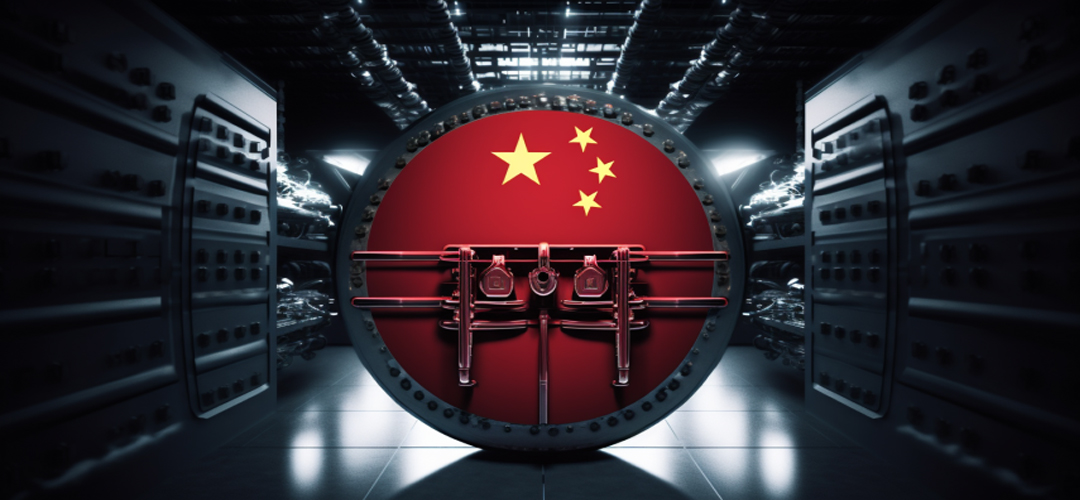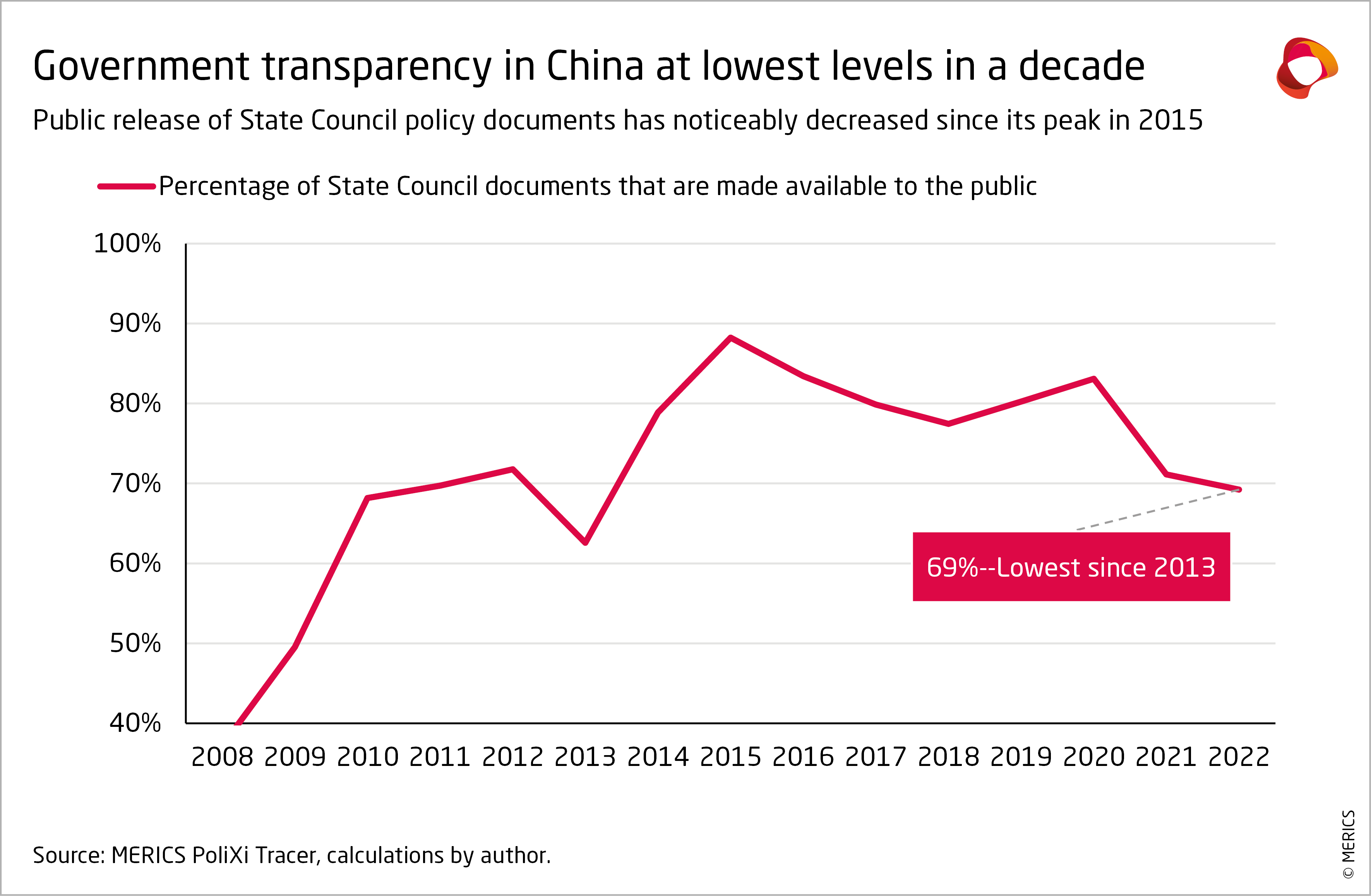Tightening the Screw
July 8, 2023 | Expert Insights

Many advocates of the authoritarian state system in China credit this very system with China's impressive rise to world power in a relatively short period of seven decades. The current generation of China's ruling elite, especially President Xi Jinping, are apparently of similar disposition.
China has been a police state since the Communist Party came to rule over the country. Human rights are severely curtailed. Free speech is non-existent. The Party reigns supreme in all aspects of life. Especially after the collapse of the Soviet Union, the Chinese ruling elite identified themselves with nationalism. Now they are defining who is a patriot and who is a traitor.
The state's grip was further tightened when in April this year, China's top legislative body passed the revised Counter-Espionage Law that has come into force from July 01. As per Xinhua, all "documents, data, materials, and items related to national security and interests" are under the same protection as state secrets following the revisions. The law does not define what falls under China's national security or interests. It expands the definition of espionage to include cyber-attacks against state organs or critical information infrastructure. The revised law allows authorities carrying out an anti-espionage investigation to gain access to data, electronic equipment, information on personal property and to ban border crossings. Cyberattacks are also classed as acts of espionage.
Background
A major change has occurred in China's political structure in the last decade.
A one-man autocracy has replaced the collective rule of the Party elite. This one man is the current President of China, Xi Jinping. The era of limited political liberalization is over. A more security-conscious state has emerged in its place.
During the Covid-19 pandemic, this security-conscious state was in full swing. Online surveillance has been increased to unprecedented levels. Any and all criticism of the state is being seen as anti-national. Very little space remains for voicing public dissent. The Party has taken greater control of the economy. Centralization of the state has been promoted.
Amid all this, the international competition between the U.S. and China is rising. Each side in this competition views this as a zero-sum game. The Chinese economy has undergone a significant hit from the pandemic, from which it is yet to recover. China also lags behind the United States in the sphere of certain critical technologies. So, suspicions about the West are extremely high within the Chinese state.
Under these prevailing circumstances, the tightening of the espionage law enhances the power of Beijing to keep the pot from boiling over.

Analysis
As per the Guardian Newspaper, quoting the U.S. National Counterintelligence and Security Centre (NCSC), the amended law gives Beijing “expanded legal grounds for accessing and controlling data held by U.S. firms in China”. The law is ambiguous on what fits its definition of national security secrets but could include information companies use as a normal part of their business. In brief, it greatly enhances the legal definition of espionage for the Chinese legal system to exploit and come down expeditiously and heavily on any deemed threat to national security.
However, few observers should be surprised by its introduction. Authoritarian regimes live off fear and paranoia. There has to be an external enemy which can be targeted. This external enemy has to be portrayed as scheming and nefarious. The threat to the state and the nation from this enemy is amplified to make it existential.
The law has been kept intentionally vague in its language. This will allow the government more leeway in determining what is spying and what is just a harmless mistake. It is all subjective. There are no rules or guidelines to follow which can prevent a person or entity from getting prosecuted under this law. This uncertainty will have a multiplier effect on Chinese citizens and foreigners.
When China began liberalising its economy, foreign businesses were welcomed with open arms. The Party needed their expertise at the time. So, it decided to back off from any kind of overt persecution of foreign entities.
This continued for quite some time. But slowly and steadily, the Chinese state began to gain in stature and confidence. It realized that it could play the foreigners in their own game. The Party slowly began its interference in the activities of foreign companies operating within China.
Xi Jinping’s new law is the culmination of this process. Now the tables have been completely turned. The Chinese state is the rule maker, and the foreign entities are the rule takers. They have to accept these conditions. Or they can just pack their bags and leave China. But that is not an option. The Chinese market is still too lucrative to be given up on the basis of a law, no matter how unjust.
Actual spying cases might get lost out in the clutter that this law will create. And actual anti-Chinese spying by Western agencies does happen at a significant level. This includes both military and economic spying.
Businesses like to operate in a transparent environment. Certain private information must remain confidential, while other documents are freely available. All this is codified in international law. The new Chinese law destroys all these norms and regulations, which the rest of the world considers normal.
Actual enterprises, both Chinese and non-Chinese, will suffer in the end. There are no red lines anymore that can be adhered to. Long-term plans cannot be made in an uncertain environment. No matter how much background checking and vetting is done, it will not be enough to clear oneself from this law. Some loopholes will always be found. And once an arrest is made on spying charges, that is the end of one's reputation. That individual or entity essentially becomes persona non-grata.
And it is not just business enterprises. Even foreign journalists and people who come to study in China could be targeted under this law. The charges can be as flimsy as they can get. Travelling to China itself can become dangerous. Since spying on its own is a serious crime, the burden of proof in a false case has to fall upon the innocent victim.
In its present condition,, the Chinese economy cannot afford the uncertainty created through this law. This law could discourage foreign investment in China. Only entities with the right connections will be able to function. The lack of free flow of information will ultimately harm China more than the West. All the gains made during the years of liberalization and opening up could be lost.
Assessment
- The enaction of this law is a step back for China in all respects. A blanket law like this could backfire on him in the end.
- A lack of a business environment will ultimately lead to a drop in business confidence in China. Finally, the Chinese people will suffer.
- There is nothing wrong with having an anti-espionage law. Many countries have one. But it should target genuine spies instead of innocent people.








Comments